Alcohol-Induced Psychosis Treatment
Alcohol psychosis treatment and prevention always involves the B complex vitamins. Below we discuss some of the most common causes of alcoholism psychosis or delirium and how you can work to prevent psychosis due to alcoholism at home (or in a hospital setting if doctors refuse to diagnose and treat the vitamin deficiency without lab results).Vitamin B1 / Thiamine Deficiency and Wernicke-Korsakoff Alcoholic Syndrome
Wernicke’s encephalopathy is a life-threatening illness caused by vitamin B1 / thiamine deficiency. If treatment with thiamine is not properly administered as soon as possible after symptoms of thiamine deficiency and Wernicke encephalopathy appear, severe damage can occur that can lead to Korsakoff psychosis or death. On the other hand, prompt treatment with vitamin B complex, specifically vitamin B1 / thiamine can reverse symptoms of alcohol psychosis.Symptoms of Wernicke encephalopathy include:
- Confusion / abnormal mental state
- Ophthalmoplegia / Ophthalmoparesis (weakness or paralysis of the muscles surrounding the eyes that may it possible for the eyes to move)
- Ataxia (lack of muscle coordination that causes speech changes, abnormal eye movements, and an abnormal gait)
About 50% of people who develop Wernicke-Korsakoff Syndrome are alcoholics, but non-alcoholics can also develop this health problem if they become vitamin B1 deficient. Many doctors are not aware of the fact that timely administration of thiamine is extremely important as the cure for alcohol psychosis. Often doctors will delay treatment in favor of getting lab results back, but because vitamin B1 is a nutrient, it should be administered prior to receiving lab reports or tests back because there is no harm done in administering this nutrient even if the psychosis is not caused by a vitamin B1 deficiency. Even if Wernicke encephalopathy is suspected and has not yet been confirmed by laboratory results, these symptoms should be treated with vitamin B1. Diagnosis of vitamin B1 or vitamin B3 deficiency can be difficult or delayed and these delays can lead to additional brain damage or even death as patients wait for treatment.
That being said, administration of vitamin B1 (or vitamin B3, see below) nutrients is fairly easy and can be accomplished by loved ones to prevent irreversible brain damage due to alcoholism even if they are in a hospital setting and the doctor refuses to administer an intravenous drip of B vitamins. In a hospital setting, thiamine should be administered intravenously at 200 mg diluted with 100 mL of normal saline and 5% dextrose to treat Wernicke’s encephalopathy. Thiamine at this dose should be administered 3 times daily to treat alcohol psychosis according to the European Federation. But, if you are in a situation where a loved one has developed alcohol psychosis and the doctors refuse to administer vital nutrients while waiting for lab results, you can administer thiamine and biotin (as well as other B vitamins) orally as a powder in water. Note that the co-administration of biotin can make it easier for people with alcohol use disorder to absorb thiamine through the digestive system. Administer 10 mg of biotin orally with 162 mg of thiamine three times daily in water or juice.
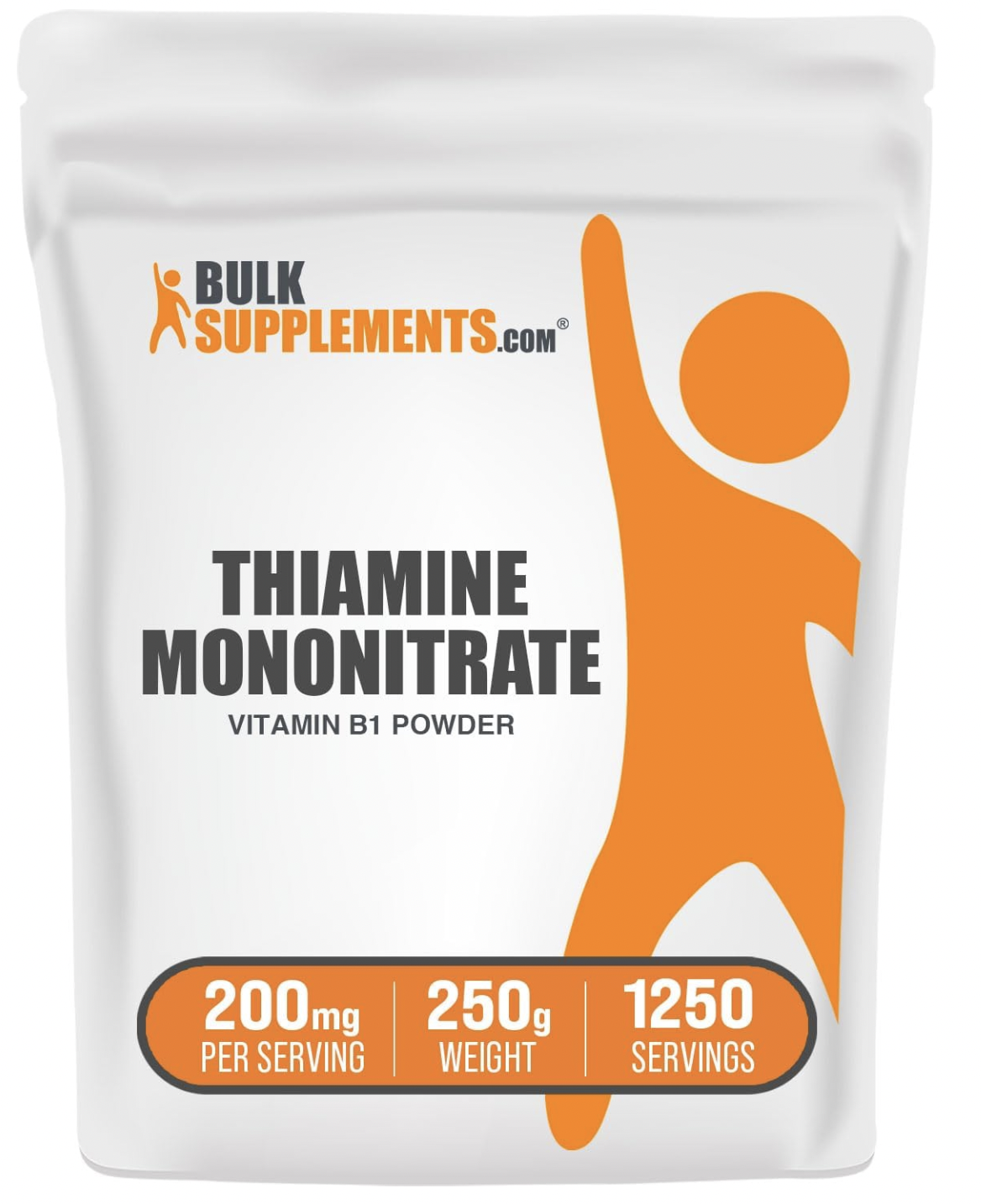
Click here to buy Thiamine Mononitrate powder.
Vitamin B3 / Niacin Deficiency and Alcohol Psychosis: Pellagra
Alcohol withdrawal delirium can also be caused by pellagra, a severe niacin deficiency. Niacin is vitamin B3 and it is also known as nicotinic acid, niacinamide, or nicotinamide. When niacin deficiency is the underlying cause of alcohol psychosis, brain swelling is what causes the biggest issues, similar to thiamine deficiency.Traditionally, pellagra or niacin deficiency was identified by the following three symptoms:
- Dementia, Delirium, or Psychosis
- Dermatitis (skin inflammation)
- Diarrhea
It’s rare for all three of these symptoms to be present in someone with pellagra, but in the past, doctors were skilled at recognizing pellagra and niacin deficiency. Experts say that in alcoholics, “delirium” may be the most apt descriptive word for the type of neurological impairment that people with vitamin B3 deficiency experience. A number of doctors are urging other medical professionals to take note of the fact that niacin deficiency can cause alcoholism delirium and psychosis because many doctors today are not educated about vitamin deficiencies as the underlying cause of neurological problems. If the neurological symptoms are caused by a niacin deficiency, treatment with oral niacinamide at a dose of 125 mg four times daily (500 mg total) for 3-4 weeks can reverse alcohol psychosis completely.
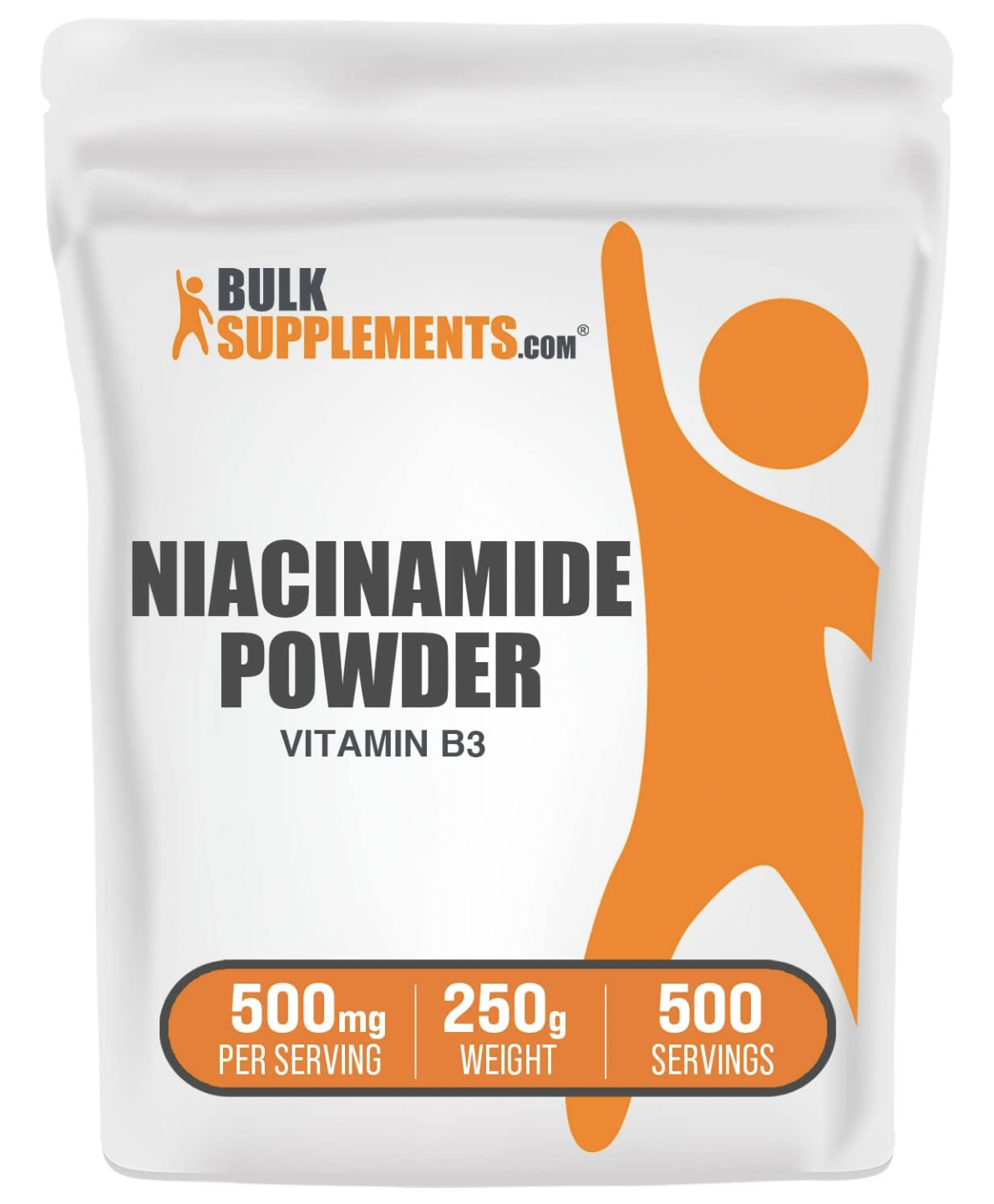
Click here to buy Niacinamide powder.
NAD+ as a Natural Treatment for Alcoholism
Nicotinamide Adenine Dinucleotide (NAD+) is a coenzyme that is found in every cell of the human body. It is derived from niacin (also known as nicotinic acid), nicotinamide or niacinamide. Note that nicotinamide and niacinamide are the exact same thing. NAD+ makes cells function better by increasing cellular energy, reducing cellular stress, and improving cellular longevity. It is administered intravenously in some alcoholism rehab facilities, but you can also take this nutrient supplement orally if you doing alcoholism recovery at home. Nicotinamide Mononucleotide may be the best choice as an at home supplement to reduce alcoholism withdrawal symptoms by promoting the easy conversion of this nutrient into NAD+.Components involved in NAD+ metabolism influence signaling processes that can reduce some of the discomforts involved in alcohol addiction withdrawal symptoms. NAD+ plays a role in repairing and restoring the body after it has been damaged by a toxin like alcohol. It prevents some of the mood-swings and depression that people often experience during alcoholism recovery at home, but it can also reduce alcohol cravings and the symptoms of alcohol withdrawal to make detox less uncomfortable.
NAD+ binds to opioid receptors, but it is not an opiate – rather, it’s a nutrient. This nutrient can be administered as a natural treatment for alcohol addiction, nicotine addiction, and opiate addiction though because of its ability to bind to opiate receptors to reduce pain and increase positive feelings. Many people say that intravenous NAD+ treatments for alcoholism make them feel much more energized and revitalized, but if you’re doing alcohol recovery at home, taking niacinamide supplements at a dose of 125 mg four times daily (about every 3-4 hours) will help prevent alcoholism psychosis during recovery at home.
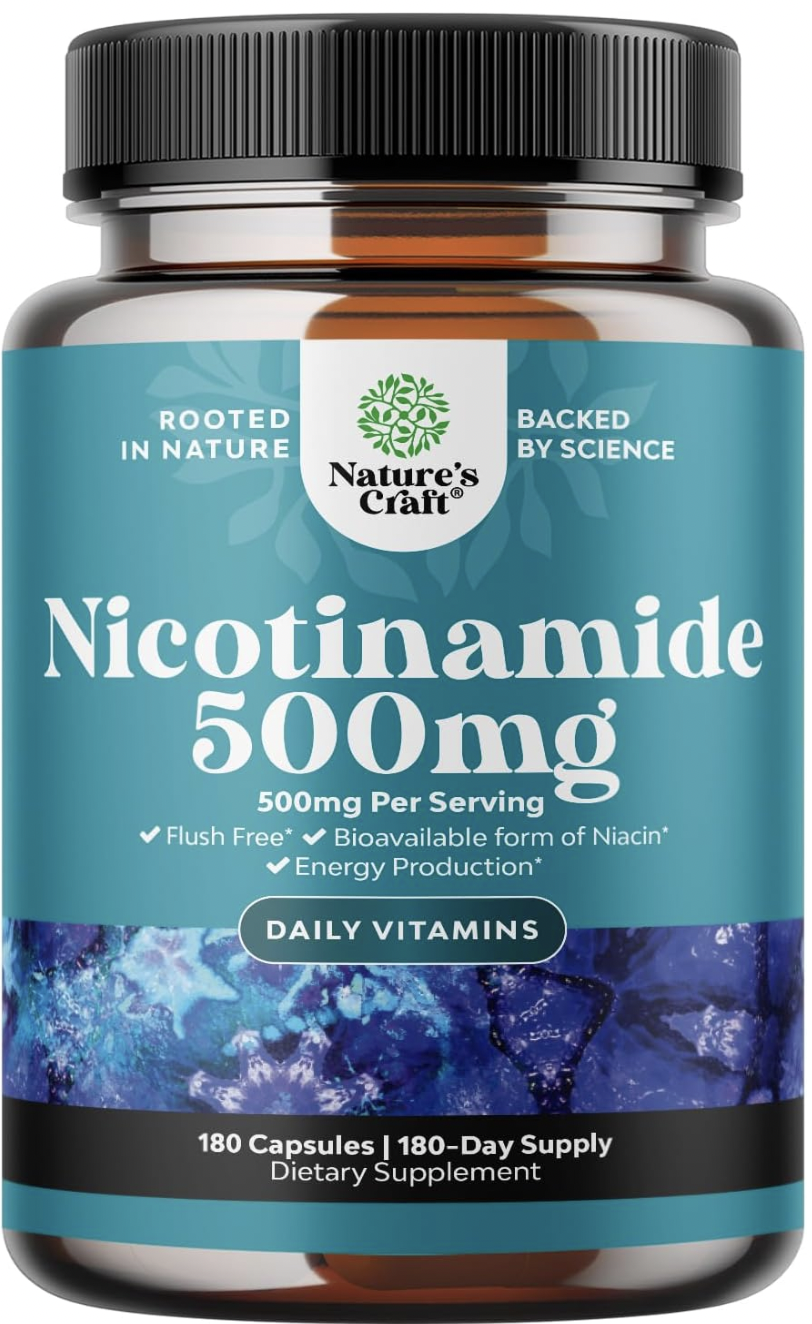
Click here to buy Nicotinamide Mononucleotide supplements.
NAD+ has the following medicinal effects on the body:
- Improves brain function
- Improves memory
- Increases overall energy throughout the body
- Acts as a natural antidepressant
- Acts to reduce alcohol cravings naturally
- Acts to reduce alcohol withdrawal symptoms naturally
- Restores damaged cells
- Improves metabolism
- Slows the aging process
- Promotes natural weight loss
NAD+ is interesting to scientists in regard to alcoholism mostly because of its ability to alter neurological signaling processes that play a role in the cycle of addiction. Raising intracellular NAD+ levels can reduce alcohol cravings naturally. Getting rid of withdrawal symptoms using NAD+ also occurs regularly in alcoholics who take this nutrient on a regular basis during recovery.
In addition to the role of NAD+ in the brain, this nutritional supplement also works to reduce damage to the liver due to alcoholism. When alcohol is metabolized in the liver, it is converted into acetaldehyde, a toxic metabolite. Acetaldehyde, in turn, is metabolized into more harmless substances over time, but the acetaldehyde metabolism process causes a change in the ratio of NAD+ to its reduced form NADH. The ratio change causes a decrease in NAD+-dependent enzyme activities. At the same time, this NADH / NAD+ ratio change results in the production of free radicals that are damaging to the liver.
As such, NAD+ is a home remedy for alcohol withdrawal and detox because it improves the detoxifying abilities of the liver while also acting to promote neurological wellness and generally reduce withdrawal symptoms from alcohol.
B Complex Vitamins as a Cure for Alcoholism Psychosis
The B complex vitamins play a vital role in the conversion of food to energy in cells as well as playing a role in the conversion of amino acids into neurotransmitters in the brain. When the B complex vitamins become deficient, a number of serious mental health problems can develop. So, if you’re doing alcoholism recovery at home, it is wise to begin taking a vitamin B100 complex nutrient supplement before you even stop drinking to reduce the risk of developing psychosis due to alcoholism during withdrawal and detox.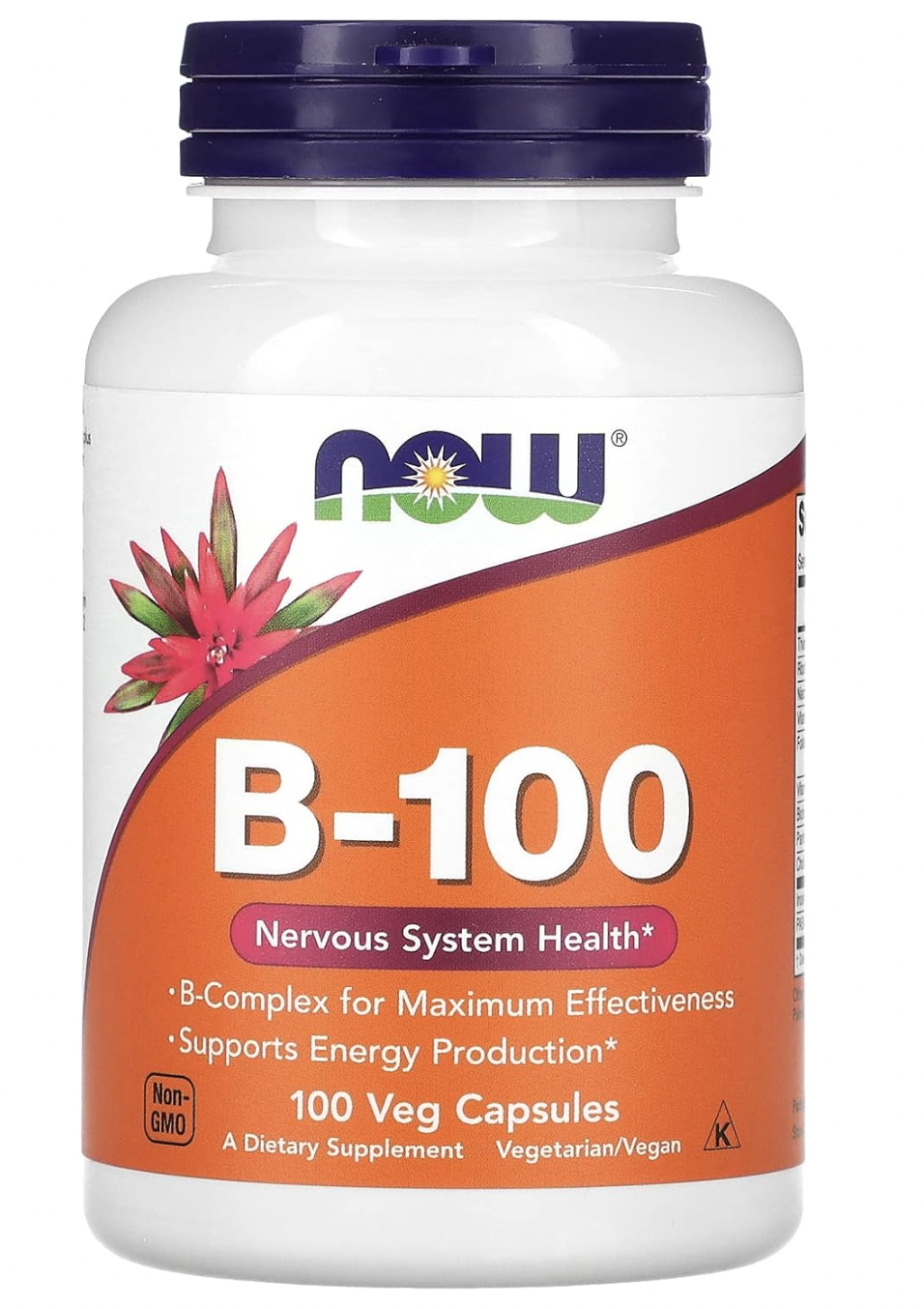
Click here to buy Vitamin B100 Complex.
In addition to taking a vitamin B100 supplement, you can also take 1000-3000 mg of L-tryptophan daily to reduce the severity of neurological impairment that happens as a result of alcohol consumption. L-tryptophan is converted into vitamin B3 in the body so this nutrient can add another layer of protection against vitamin B3 nutrient deficiency.The Relationship Between Nicotine Addiction and Alcohol Addiction Vitamin B3 / Niacin is also known as “nicotinic acid”. Indeed, nicotinic acid and nicotine are related substances. Clearly, niacin / nicotinic acid deficiency can play a role in the health outcome of patients with alcoholism, but scientists have also found that there’s an interaction between alcohol and nicotine.
According to research, alcohol can strengthen the rewarding effects of nicotine and vice versa. Without the co-use of nicotine, alcohol effects are bi-phasic: when blood alcohol levels are low, but rising, alcohol functions as a stimulant. On the other hand, when alcohol levels are high and beginning to decrease, alcohol functions as a depressant. But the co-use of nicotine can strengthen the stimulant effects of alcohol or decrease the depressant effects that people subjectively experience while drinking.
The use of niacin for nicotine withdrawal should be noted by anyone who wants to detox from alcohol and cigarettes at the same time. Take 100 mg of niacinamide powder every 2-3 hours during the day (500 mg total) to reduce nicotine cravings naturally without the patch or gum while simultaneously working to reduce the risk of alcoholism psychosis.
Resources:

 Psychosis can be caused by emotional issues such as trauma, but anyone who might have a vitamin deficiency, including alcoholics should begin dosing with vitamin B1 an vitamin B3 as well as the other B vitamins to prevent alcohol psychosis.
Psychosis can be caused by emotional issues such as trauma, but anyone who might have a vitamin deficiency, including alcoholics should begin dosing with vitamin B1 an vitamin B3 as well as the other B vitamins to prevent alcohol psychosis.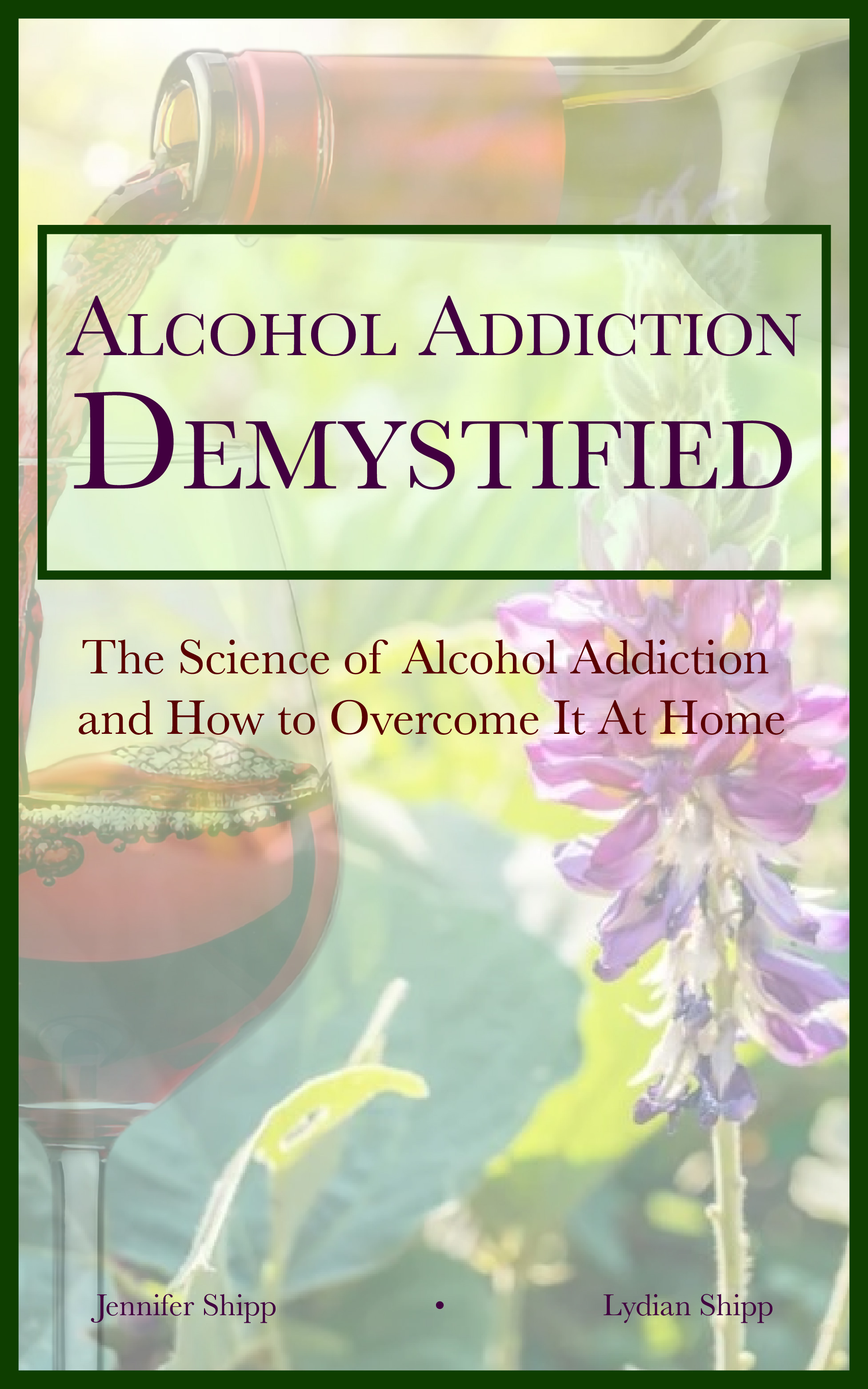 Alcohol Addiction Demystified: The Science of Alcohol Addiction and How to Overcome It At Home - BUY HERE!
Alcohol Addiction Demystified: The Science of Alcohol Addiction and How to Overcome It At Home - BUY HERE!







